
Aircraft Spare Parts Trading License in UAE Freezones
To secure an Aircraft Spare Parts Trading License in UAE Free Zones, businesses can tap into a thriving aviation market with benefits like 100% foreign ownership, zero taxes, and fast-track customs in hubs like Dubai, Sharjah, or UAQ FTZ. This license ensures compliance with UAE regulations, enabling seamless trading of aircraft components while leveraging the UAE’s strategic location and world-class logistics infrastructure.
Table of Contents
Related Articles


The Impact of CARF on UAE Crypto Traders | Ready to Report FTA

Feasibility Study Report Preparation in UAE

Let's Talk
Sign Up For Free Consultation
Aircraft Spare Parts Trading License
Starting an aircraft spare parts company setup in the UAE can be an excellent business venture, especially within the free zones, which offer a range of benefits for international traders. The aircraft spare parts trading license enables businesses to engage in the buying and selling of various aircraft spare parts and services, such as air-condition trading, landing gear components, and engine parts. These free zones, including those in Dubai, are home to a dynamic aviation hub, attracting major airlines and original equipment manufacturers (OEMs), creating a fertile ground for aviation-related businesses.
By obtaining a spare parts trading license in Dubai, entrepreneurs can take advantage of a hassle-free customs clearance process, as well as the ability to operate closed facilities for inventory storage and operations.
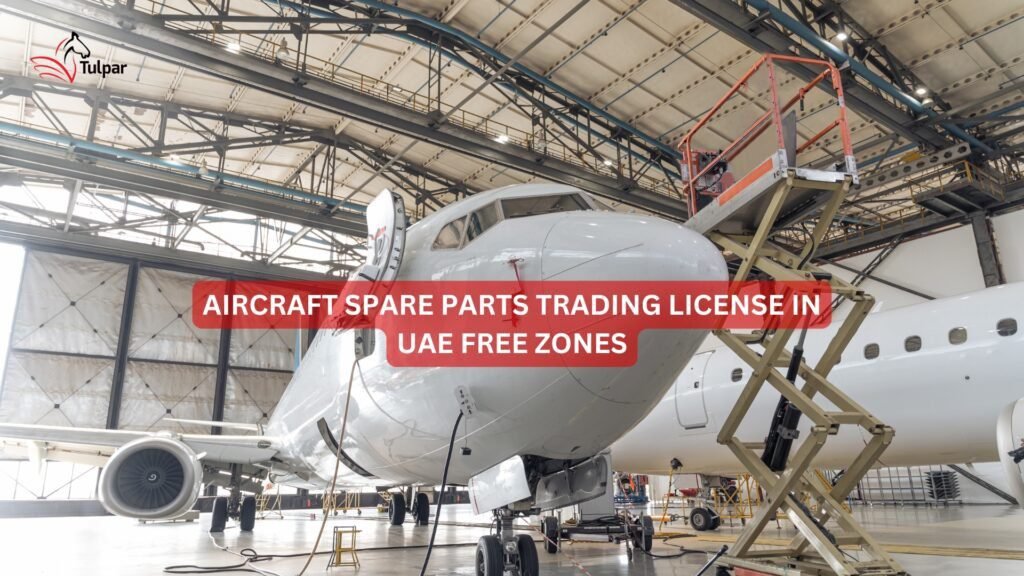
Foreign ownership is one of the key benefits of registering a trading business in the UAE’s free zones, allowing foreign investors to fully own their businesses without the need for a local sponsor. The license allows full commercial trading within the UAE and, in some cases, even export regulations to international markets. The automated process for business setup in these zones simplifies tasks like obtaining a commercial license, making it quicker for entrepreneurs to establish their operations.
General trading licenses can be secured for businesses that wish to deal in a wide range of goods, including building materials, along with aircraft spare parts. These free zones are a preferred choice for trading business in Dubai UAE, especially for companies looking to capitalize on the booming demand for aviation parts and services. Businesses operating in the UAE free zones enjoy significant advantages, including tax exemptions and no currency restrictions, making it an attractive destination for both local and international traders.
With support from experts like Tulpar Global Taxation Services, businesses can navigate the complex requirements of obtaining the necessary licenses and ensuring compliance with local regulations. From registering the business to ensuring customer loyalty through effective aircraft trade spare parts sales strategies, Tulpar Global Taxation Services offers comprehensive assistance in setting up and running a successful aircraft spare parts trading operation in the UAE.
Overview of Aircraft Spare Parts Trading in the UAE
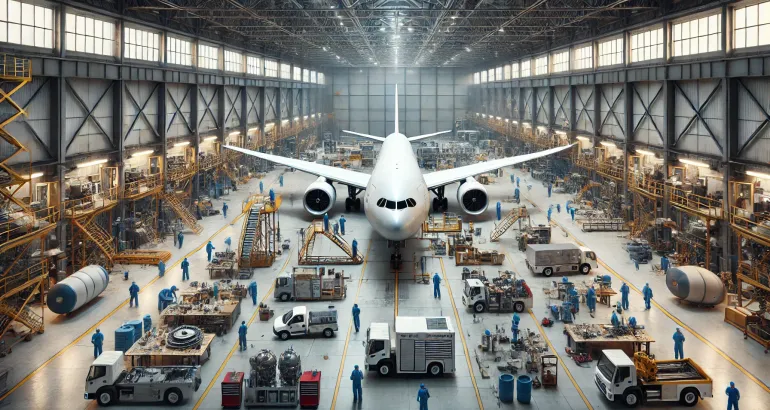
The aircraft spare parts trading industry in the UAE is a dynamic and rapidly growing sector, largely driven by the region’s strategic location as a global aviation hub. The country has become one of the most sought-after destinations for aircraft operators and businesses involved in the aviation industry due to its infrastructure, business-friendly environment, and strong international connectivity. Today, the UAE is ranked as a leader in the aircraft parts supply chain, attracting businesses and entrepreneurs from around the world who are looking to buy aircraft parts & components or set up aircraft spare parts operations.
The range of products traded in this market includes a wide variety of components, from engine parts to aircraft control systems, automated equipment, and aircraft operators’ spare parts used in the manufacturing process. The market in Dubai is particularly robust, supported by its status as a leading business hub for aircraft components trading both regionally and internationally. Aircraft spare parts and used spare parts obtained from global sources are key elements in the UAE’s spare parts industry, ensuring that maintenance and repair operations are efficient, cost-effective, and timely.
Benefits of Aircraft Spare Parts Trading in Free Zones

The UAE’s Free Zones provide a wealth of benefits for businesses involved in spare parts trading, making them an attractive option for those looking to establish a presence in the region. These zones are designed to simplify the setup of trading operations, streamline the import & export of goods, and provide businesses with the infrastructure needed for success. For the aircraft parts supply chain, these Free Zones serve as vital platforms that drive business activities related to spare parts distribution and management.
Tax Incentives:
One of the most significant advantages of trading in the UAE’s Free Zones is the tax incentives available to businesses. Companies in these zones are often granted corporate tax exemptions for a specified period, which is typically 15-50 years, depending on the zone. This tax advantage is a powerful tool for companies trading aircraft spare parts, as it allows for greater profitability, more competitive pricing, and reinvestment in other areas of business growth.
By leveraging the tax incentives, companies involved in spare parts trading can improve their bottom line, which is especially beneficial in a competitive market like aviation.
100% Foreign Ownership:
Another key benefit of establishing a business in a Free Zone is the ability to retain 100% foreign ownership. This is particularly valuable for international companies engaged in spare parts trading who may want to have full control over their operations in the UAE. Unlike in other business setups in the UAE, where a local partner may be required, a Free Zone business setup allows for complete autonomy.
This is crucial for the spare parts market, where strategic partnerships and the ability to manage operations independently can be key to accessing international markets and securing exclusive contracts for aircraft components trading.
Simplified Import and Export Procedures:
The Free Zones in the UAE offer simplified import export procedures, which are essential for businesses trading aircraft parts both within the UAE and across international markets. Obtaining the necessary import permits and export licenses is much more streamlined in Free Zones, allowing companies to reduce their administrative burdens and focus on expanding their business activities.
This efficiency is particularly important in the aircraft parts market, where time-sensitive transactions and the movement of spare parts are common. For companies trading in used spare parts, these simplified processes can significantly improve the speed and flexibility of their operations.
Spare Parts Trading in Dubai: A Gateway to International Markets

Dubai is one of the top global hubs for aircraft spare parts trading, offering vast opportunities for businesses in the aviation industry. With its state-of-the-art airports, world-class logistics infrastructure, and access to key international markets, Dubai is a strategic location for distributing and managing spare parts for civil-aircraft, both new and used. The demand of aircraft spare parts in the UAE, particularly in Dubai, is driven by the growing aviation sector, with businesses needing access to high-quality components for repair, replacement, and maintenance.
Spare parts trading in Dubai is not just limited to the import of new components. A significant portion of the market also deals with used spare parts obtained from decommissioned aircraft, which are repurposed for use in aircraft repairs and operations. This growing market for used spare parts presents an excellent opportunity for companies involved in the aircraft parts market to thrive and expand. Furthermore, establishing a parts trading license in Dubai offers businesses a reputable platform for international expansion.
Regulatory Landscape and Licensing
Obtaining the correct licenses and permits is essential for businesses engaging in spare parts trading in the UAE. A professional license is typically required to engage in aircraft spare parts trading activities. A company setup may also involve obtaining a commercial license, which is suitable for businesses dealing in the distribution of goods such as aviation components, tools, and control systems. For those operating within the Free Zones, businesses can apply for a parts trading license in Dubai, which facilitates efficient operations and provides an avenue for growth in the highly competitive spare parts industry.
Additionally, businesses that deal with specific sectors, such as the automotive or civil aircraft market, may need to meet specialized regulatory requirements. This ensures that all components, whether new or used, comply with safety and quality standards. The UAE’s well-regulated environment helps businesses gain trust with international clients while protecting their operations from legal pitfalls.
Strategic Partnerships and Global Expansion
One of the primary drivers of success in the aircraft spare parts market is the formation of strategic partnerships. Companies involved in trading aircraft parts can leverage partnerships with aviation manufacturers, distributors, and repair centers to expand their reach and gain access to a wider range of products and services. Strategic partnerships can help facilitate the import of aircraft components and control systems used in the manufacturing process, ultimately enhancing the distribution and management capabilities of spare parts traders.
For companies like Tulpar Global Taxation Services, which specialize in providing support for business setups in the UAE, the formation of these partnerships can be key to crafting an effective business plan that aligns with long-term goals. These partnerships not only enhance the capacity to import aircraft parts but also provide businesses with the local knowledge needed to navigate the complex regulatory framework of the UAE.
The aircraft spare parts market in the UAE presents significant opportunities for businesses in the aviation industry, driven by a combination of favorable regulatory conditions, tax incentives, and access to international markets. The UAE, particularly Dubai, is positioned as a global leader in spare parts trading, and companies involved in aircraft trading, repair, and maintenance can benefit from the country’s strong infrastructure, regulatory ease, and strategic partnerships. With the support of experts like Tulpar Global Taxation Services, companies can successfully navigate the complexities of spare parts trading, ensuring long-term growth and expansion in the competitive global aviation market.
Regulatory Framework for Aircraft Spare Parts Trading
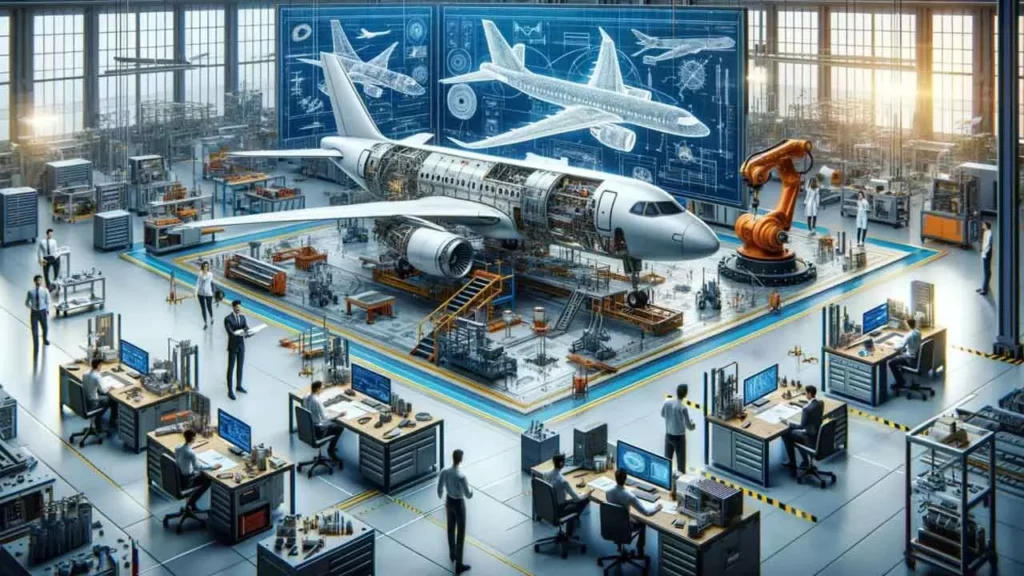
The UAE is a prominent hub for aircraft spare parts trading, driven by its strategic geographical location, world-class infrastructure, and well-established regulatory frameworks that support the aviation industry. As an aviation powerhouse, the UAE has established a comprehensive regulatory framework that governs the trading of aircraft and spare parts, ensuring the efficient, legal, and safe movement of these products. Both mainland businesses and those based in Free Zones in the UAE are required to follow specific regulations and obtain the necessary licenses to operate in the market.
Overview of Licensing Requirements
In the UAE, the regulatory framework for aircraft spare parts trading is governed by both federal and local authorities. The first step to engaging in the trading business is obtaining a trade license, which allows a company to conduct commercial activities. Companies can choose to operate in either mainland UAE or Free Zones, with specific licensing requirements depending on the location.
For mainland businesses, obtaining a commercial license is a requirement, which can include licenses for both manufacturing and trading. Businesses operating in Free Zones can benefit from streamlined administrative processes and regulations that facilitate importing and exporting aircraft parts. The type of license, whether it’s a commercial license or a specialized license for parts trading, will depend on the nature of the business and the specific products being traded, including airline components, control systems, and materials used in manufacturing.
The General Civil Aviation Authority (GCAA) also plays a key role in overseeing the aviation sector and ensuring compliance with national aviation regulations. It works in tandem with other regulatory bodies to provide a seamless process for companies involved in aircraft spare parts trading.
Role of the General Civil Aviation Authority (GCAA)
The GCAA is the federal authority responsible for regulating civil aviation in the UAE. The GCAA is integral to the regulatory framework for aircraft spare parts trading. It establishes the safety, security, and maintenance standards for aircraft and their components, which includes ensuring that parts traded within the UAE meet stringent quality control standards.
GCAA’s role also extends to licensing and oversight of the aircraft operators, airline companies, and aircraft maintenance facilities that use spare parts. The GCAA provides guidance on the regulatory requirements for importing, trading, and distributing spare parts, especially when it comes to ensuring that all products used in the manufacturing or repair processes of aircraft meet the required standards. This regulatory oversight is critical for maintaining the integrity of the UAE’s domestic aviation industry, which is recognized globally for its reliability and safety.
Steps to Obtain a Trading License
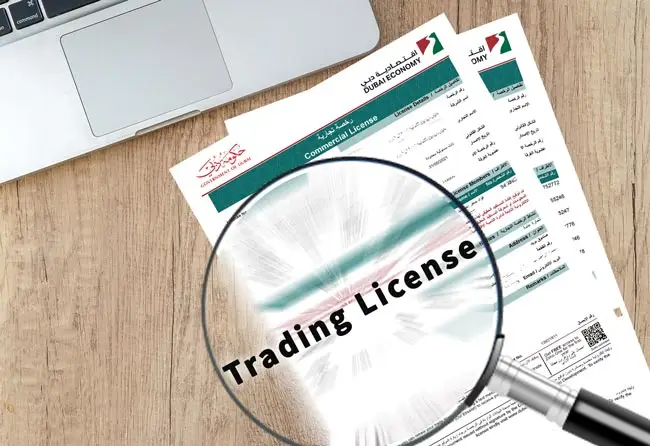
Starting an aircraft spare parts trading business in the UAE requires careful preparation to ensure compliance with the regulatory framework. Below are the key steps involved in obtaining a trading license.
Preparing Necessary Documentation
The first step to obtaining a commercial trade license for aircraft parts trading involves preparing the necessary documentation. This includes drafting a detailed business plan outlining the nature of your business activities, including a market analysis of demand for aircraft spare parts and sales strategies. The documentation also includes proof of company setup, visa details for staff, and other administrative forms. Additionally, for companies operating in Free Zones, documentation must align with the regulations specific to that zone.
Submitting the License Application
Once all the necessary documentation is prepared, the next step is submitting the license application to the relevant authorities. For mainland businesses, this involves submitting the application to the Department of Economic Development (DED) in the emirate where the business will operate. For businesses in Free Zones, applications are submitted directly to the zone authority, which handles the licensing process.
For companies involved in importing and trading aircraft and spare parts, it is crucial that the license application includes all relevant details about the import export processes. The application should also demonstrate compliance with customs regulations and the GCAA’s standards for safety and quality.
Awaiting Approval and Inspections
After submitting the application, businesses must wait for approval and undergo any required inspections by the relevant authorities, including the Dubai Civil Aviation Authority (DCAA) or other local authorities. These inspections ensure that the business complies with the standards set by the GCAA and that the parts to be traded meet safety and quality standards.
Once all approvals and inspections are completed successfully, the business is granted its trade license, allowing it to operate legally in the UAE. This process is crucial for ensuring that aircraft spare parts trading in the UAE remains compliant with the highest industry standards.
Customs Policies for Importing Aircraft Parts

Importing aircraft parts into the UAE is subject to strict customs regulations. Businesses involved in aircraft spare parts trading must be familiar with the relevant policies to ensure smooth import and export operations. The UAE’s customs policies are designed to streamline the process for businesses while maintaining high standards of security and quality.
Import Regulations
Importing aircraft parts into the UAE is governed by the UAE Customs Authority, which enforces regulations on the types of materials and products that can enter the country. Aircraft spare parts, including new components and used spare parts obtained from decommissioned aircraft, must comply with specific import regulations. These parts are usually classified according to their category (such as engines, components, or control systems) and require special permits to enter the country.
Customs policies also ensure that any products entering the UAE meet the standards set by the GCAA for safety and operational integrity. In addition to this, businesses involved in importing aircraft parts must follow standard procedures for documentation, including obtaining an import permit and ensuring that the components comply with international aviation standards.
Required Customs Documentation
To import aircraft parts into the UAE, businesses must submit various documents to customs authorities. These typically include the commercial invoice, packing list, bill of lading, and certificate of origin for the parts. For used spare parts, additional documentation, such as certificates of authenticity or compliance with GCAA regulations, may be required to verify the parts’ quality and suitability for use in aircraft repair or maintenance.
Working with a Customs Broker is often recommended to navigate the complexities of importing aircraft parts, as they are well-versed in the required paperwork and procedures. The Customs Broker can also help businesses meet the specific requirements for importing materials used in the manufacturing of aircraft, thus preventing delays in the importation process.
Handling Customs Duties
Customs duties on aircraft parts vary depending on the classification of the goods being imported. For most aircraft and spare parts, customs duties are relatively low, making the UAE an attractive destination for businesses trading aircraft components. However, businesses must be prepared to handle customs duties efficiently, as they can impact the overall pricing and profitability of their products. A key aspect of handling customs duties effectively is ensuring that the right tariff codes are applied to the imported products. Inaccurate documentation or incorrect tariff codes can result in delays or fines, which can be costly for businesses operating in the competitive aircraft parts market.
The regulatory framework for aircraft spare parts trading in the UAE is designed to ensure that businesses comply with national and international aviation standards, which is crucial for maintaining the integrity of the aviation industry. By understanding the licensing requirements, the role of the General Civil Aviation Authority (GCAA), and the steps to obtain a trading license, businesses can successfully navigate the regulatory landscape. Moreover, understanding the customs policies for importing aircraft parts, including required documentation and handling customs duties, ensures that businesses can efficiently manage the importation process.
Tulpar Global Taxation Services offers expert support for companies looking to establish themselves in the UAE’s aircraft spare parts market, providing guidance on company setup, obtaining business licenses, and ensuring compliance with local regulations. Their expertise helps businesses streamline their operations and successfully enter the UAE’s competitive aviation market.
Finding Your Niche in the Market

In a rapidly evolving and competitive industry like aircraft spare parts trading, finding your niche is critical to standing out and succeeding. The UAE is a global aviation hub, and Dubai, in particular, serves as a gateway for the import export of aircraft parts & components. With its booming aviation industry, including both civil aviation and the rise of aircraft spare parts trading, identifying and targeting specific market segments can drive significant business growth.
Identifying Market Demand
The first step in finding your niche within the aircraft spare parts market is identifying market demand. The aviation industry is vast, with numerous parts & components required for aircraft maintenance, repair, and manufacturing. Demand for these components is driven by various factors, including growth in civil aviation, airline expansions, and regional forces influencing aircraft part suppliers.
In order to understand what products will be in high demand, it’s important to conduct a detailed market analysis. This includes understanding which parts are most frequently needed by aircraft operators, maintenance providers, and repair stations. It’s also important to look at trends in the industry, such as the increasing use of artificial intelligence (AI) in aircraft technology and how these advances may affect the need for more specialized parts. By aligning your offerings with the demand, you can tailor your approach to meet the needs of the market.
Competitor Analysis
Another crucial aspect of identifying your niche in the market is conducting a thorough competitor analysis. Dubai is a hotspot for spare parts businesses, and understanding the competitive landscape is essential for positioning your business effectively. Analyzing what your competitors are offering, including their product range, pricing strategies, and distribution channels, can help you identify gaps in the market and unmet customer needs.
For example, while many companies may focus on a wide range of aircraft spare parts & components, you may decide to specialize in high-demand, less common parts, or focus on specific regions’ aircraft part needs. Identifying what competitors are missing in their offerings allows you to strategically position your business with a unique value proposition, whether it’s offering rare parts, providing specialized services, or catering to specific types of aircraft.
Tailoring Offerings to Customer Needs
Tailoring your product offerings to customer needs is key to finding your niche in the aircraft spare parts market. In the UAE, aircraft spare parts trading is not just about offering products but about understanding customer preferences and business activities. Civil aircraft operators and maintenance providers require specific, high-quality parts that are compatible with their fleets. By carefully analyzing customer feedback, understanding pain points, and anticipating trends in the aviation industry, you can provide a more targeted range of products.
For instance, focusing on aviation spare parts that are often in demand, like those used in aircraft repair, or specialized components that aren’t readily available, can give you a competitive edge. Additionally, offering tailored solutions that meet specific customer needs—such as providing aftermarket services, expert consultation, or personalized delivery options—can make your business more attractive to customers in the aviation sector.
Building Strategic Partnerships

In the competitive and fast-paced aviation industry, building strategic partnerships is key to success. The UAE’s aviation sector thrives on collaboration between various stakeholders, including suppliers, maintenance providers, and airlines. By forging strong business connections, companies can expand their reach, improve their offerings, and gain a competitive advantage. Partnerships also open the door to valuable opportunities in both the local and international markets.
Collaborating with Suppliers
One of the most important strategic partnerships for aircraft spare parts trading businesses is with suppliers. Collaborating with reliable suppliers of aircraft parts & components ensures that your business can consistently meet customer demand for high-quality products. Establishing strong relationships with suppliers allows you to negotiate competitive pricing, secure bulk discounts, and have access to the latest products in the aviation industry.
Moreover, working with suppliers from different regions can expand your reach and enable you to offer a wide variety of parts and components. For businesses in the UAE, particularly in Free Zones, it’s crucial to establish partnerships with international suppliers, as these connections can help optimize import and export opportunities and streamline business activities.
Networking Within the Industry
Networking is vital to building strong strategic partnerships within the aviation sector. Establishing connections with key players in the civil aviation sector, including airline operators, manufacturers, and aircraft maintenance companies, can help you stay on top of industry trends, anticipate market needs, and expand your customer base. Industry events, conferences, and forums in Dubai and other major aviation hubs provide excellent opportunities to meet potential business partners.
By attending networking events and engaging with industry professionals, you can learn more about emerging trends in the aviation industry, such as advancements in aircraft technology or changes in regulations for spare parts trading. Networking can also help you discover new distribution channels, business partners, and market segments that align with your company’s vision and expertise.
Establishing Relationships with Airlines and Maintenance Providers
Building strong relationships with airlines and maintenance providers is one of the most effective ways to expand your business in the aircraft spare parts market. Airlines and maintenance providers are constant consumers of spare parts & components, and having a direct relationship with them allows you to streamline your sales strategies, manage inventory more effectively, and ensure timely deliveries. These relationships can be mutually beneficial, as you can offer tailored solutions to meet their specific needs, such as providing parts for different types of aircraft or offering expedited shipping services. Establishing a good rapport with airlines and maintenance providers also helps you understand their future demands, enabling you to anticipate the parts they will need in advance.
Additionally, these partnerships can open doors to new markets, whether in the UAE or abroad, as airlines and maintenance providers often work with international counterparts. Through these connections, your business can expand its reach and access a broader customer base. Finding your niche in the aircraft spare parts market involves a combination of understanding market demand, conducting competitor analysis, and tailoring your offerings to customer needs. By positioning yourself in a specific segment of the market, you can effectively differentiate your business and drive success. Strategic partnerships play a pivotal role in expanding your reach and enhancing your competitiveness. Collaborating with suppliers, networking within the industry, and establishing relationships with airlines and maintenance providers are all key steps to building a strong presence in the aircraft spare parts trading company.
Tulpar Global Taxation Services offers expert advice and support to businesses looking to establish themselves in the UAE’s dynamic aviation sector. Whether you are setting up a new aircraft spare parts trading company in Dubai or navigating the complexities of business setup in UAE, Tulpar Global can provide the guidance you need to succeed in the highly competitive market. By leveraging their expertise, businesses can ensure a smooth setup, secure valuable partnerships, and thrive in the ever-evolving aviation industry.
Best Practices for Inventory Management
Effective inventory management is crucial for businesses involved in aircraft spare parts trading. Managing stock efficiently ensures that you can meet customer demand while avoiding overstocking or understocking, both of which can negatively impact business performance. In the UAE, where the aviation sector is booming, businesses in the aerospace industry can leverage several best practices for inventory management to maintain smooth operations and improve profitability.
Stock Control Techniques
One of the key aspects of inventory management is effective stock control. For companies dealing in aircraft parts and components, such as engines, control systems, or other spare parts for aviation sectors, ensuring that stock levels are always optimized is essential. Several techniques can be applied to maintain control over stock levels:
- Just-In-Time (JIT) Inventory: This technique focuses on minimizing inventory holding costs by ordering parts only when needed. It works well in industries like aircraft maintenance, where demand for spare parts can be unpredictable. By using JIT, businesses can manage cash flow better and reduce storage costs.
- ABC Analysis: This method categorizes inventory into three groups based on their value and turnover rate. ‘A’ items are high-value or fast-moving parts like engines or avionics, whereas ‘C’ items are low-value and slow-moving, like auxiliary components. This technique helps prioritize stock and ensures critical parts are always available.
- FIFO (First In, First Out): This is especially important in spare parts trading, as some components have expiry dates or may become obsolete. By using FIFO, companies ensure that older parts are used or sold first, minimizing the risk of stock becoming outdated.
- Automated Stock Replenishment: By automating stock replenishment using inventory management systems, businesses can prevent stockouts and ensure that they always have the parts needed for aircraft maintenance or repair activities. This method improves efficiency and reduces the risk of human error.
Warehousing Solutions
Efficient warehousing is vital to streamline inventory management in the aircraft spare parts industry. As the supply of spare parts can be vast and diverse, companies must implement effective warehousing solutions to store, manage, and distribute components.
- Optimized Storage Layout: Aircraft parts, such as raw materials or aircraft maintenance components, can vary in size and complexity. Organizing the warehouse by parts type, such as engines, avionics, and air-conditioning systems, ensures easy accessibility. Creating clearly defined storage areas for each type of component also helps minimize handling time.
- Temperature-Controlled Storage: Certain aircraft parts, like those used in control systems or avionics, require temperature-controlled storage to preserve their functionality and prevent degradation. This is especially crucial when dealing with sensitive equipment, ensuring that parts remain in optimal condition.
- Safety and Security Measures: Since aircraft spare parts are high-value items, warehousing solutions must include comprehensive security measures. Implementing surveillance systems, restricted access areas, and inventory tracking technologies can safeguard valuable parts from theft or damage.
- Effective Inventory Tracking Systems: Advanced warehouse management systems (WMS) help monitor inventory movement in real-time, ensuring that parts are always accounted for. With the proper tracking system, businesses can avoid discrepancies, track stock levels, and ensure compliance with the Civil Aviation Authority (GCAA) regulations regarding spare parts.
Technology in Inventory Management
In today’s digital age, technology plays a vital role in streamlining inventory management for aircraft spare parts businesses. Integrating modern technologies can improve efficiency, enhance accuracy, and reduce manual intervention.
- Inventory Management Software: Implementing specialized software solutions allows businesses to track stock levels, manage orders, and forecast demand. This software can be customized for the aviation industry, helping businesses dealing in aircraft maintenance to manage various parts, including control systems, raw materials, and complex machinery.
- Automated Data Collection: Using technologies like RFID (Radio Frequency Identification) and barcode scanning can automate data collection and reduce the chance of errors in inventory tracking. These systems help businesses in the UAE quickly locate parts in warehouses, enhancing operational efficiency.
- Artificial Intelligence (AI): AI can be used to predict demand trends and optimize stock levels for spare parts, based on historical sales data and market trends. In the aviation industry, AI-powered systems can help forecast the demand for specific parts and avoid understocking or overstocking.
- Cloud-Based Solutions: Adopting cloud-based inventory management systems ensures that businesses can access inventory data remotely, making it easier to manage stock levels across multiple locations. This is particularly useful for businesses that operate in free trade zones in the UAE or have multiple warehouses across regions.
Emerging Trends in the Aerospace Sector
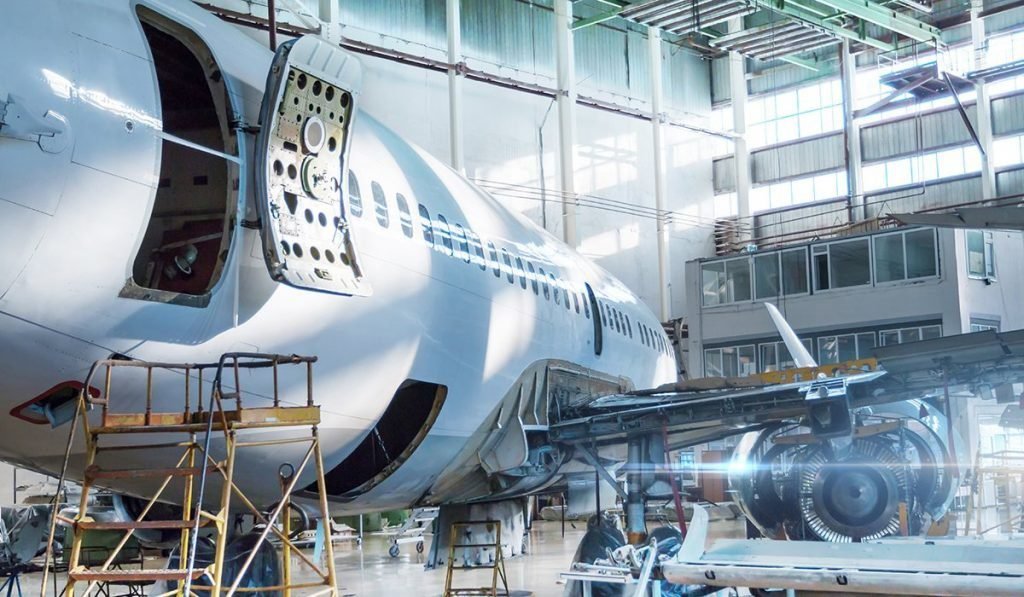
The aerospace sector is continuously evolving, driven by technological advancements, changing customer needs, and global market dynamics. As the demand for aircraft parts and components increases, businesses involved in aircraft spare parts trading must stay updated on emerging trends to remain competitive in the market.
Opportunities for Spare Parts
As the aviation industry grows, there are increasing opportunities for spare parts trading businesses. With the continuous operation of a wide range of aircraft, both commercial and non-commercial, the demand for high-quality, efficient, and reliable spare parts is expected to rise. These parts are crucial not only for regular aircraft maintenance but also for emergency repairs, fueling the demand for spare parts businesses.
- Sustainability: There is a growing trend toward more sustainable aviation solutions, which has an impact on the spare parts market. Businesses that specialize in providing environmentally friendly or recycled aircraft parts are likely to attract more customers interested in reducing their carbon footprint.
- Aftermarket Parts: The growing focus on reducing maintenance costs has resulted in a rising demand for aftermarket parts. Aircraft operators and maintenance providers often look for cost-effective alternatives to original equipment manufacturer (OEM) parts. This opens up significant opportunities for spare parts businesses to provide high-quality, affordable alternatives.
Aviation Sectors
The aviation sectors in the UAE, including both civil aircraft operators and military aircraft, are rapidly evolving, and businesses must adapt to these changes. With the UAE’s strategic location as a key aviation hub, companies involved in spare parts trading have access to international markets and customers. The demand for parts spans various regions and forces, influencing supply chains and distribution channels.
- Military and Civil Aircraft: With the UAE’s investment in both commercial and military aviation, there is a diverse range of parts needed for different types of aircraft. Aircraft maintenance businesses need to source parts for different aircraft, from commercial airliners to specialized military planes. This diversity in demand creates unique challenges and opportunities for spare parts traders.
- Technological Advancements: Advances in aviation technology, including the integration of AI and automation in aircraft operations, are expected to influence the demand for spare parts. Parts used in automated systems and new-age aircraft are likely to see a rise in demand, and businesses must adapt to these technological shifts to meet market expectations.
Demand for Aircraft Parts
The growing global aviation industry drives increased demand for aircraft parts, presenting substantial opportunities for spare parts businesses. Dubai’s position as a gateway for the aviation market in the UAE and the Middle East allows companies involved in aircraft parts and components to access diverse markets. To capitalize on this, businesses need to understand the types of licenses available, including professional trade licenses and the regulations for spare parts trading.
Types of Licenses for Spare Parts Trading
In the UAE, businesses in the spare parts trading industry need to obtain specific licenses to operate. The type of license depends on the nature of the business activities, such as the supply of spare parts, aircraft maintenance, or aircraft spare parts trading. To operate legally, businesses must secure a Trading License from the Department of Economic Development (DED) in Dubai or set up in one of the UAE’s free trade zones.
Conclusion
Best practices for inventory management, such as efficient stock control techniques, optimized warehousing solutions, and leveraging technology, are key to success in the aircraft spare parts trading company. Emerging trends in the aerospace sector, including increased demand for sustainable parts and advances in technology, also present significant opportunities for growth.
Tulpar Global Taxation Services can help businesses navigate the complexities of aircraft spare parts trading, from setting up in the UAE to obtaining the necessary licenses and permits. Their expert advice ensures that businesses comply with regulatory standards, optimize their operations, and make the most of opportunities in the growing aerospace sector. Whether you are involved in spare parts supply, aircraft maintenance, or distribution, Tulpar Global Taxation Services provides invaluable support to ensure the success of your business setup in UAE.
